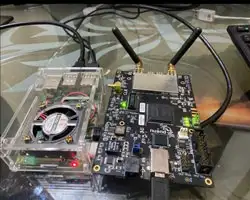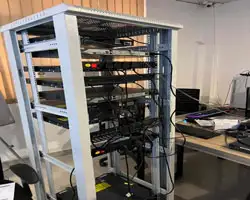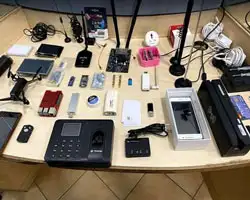Diploma in Cyber Forensics: Investigate, Analyze, and Protect
May 12, 2023 2023-06-26 13:19Diploma in Cyber Forensics: Investigate, Analyze, and Protect
Cyber Forensics Diploma Course in Delhi
4239 Ratings
9154 Learners

Diploma in Cyber Forensics Course Overview
- Certified SOC Engineer Course
- Threat Intelligence Expert (TIE) Course
- Cyber Incident Handling Expert (CIHE) Course
- Cyber Forensics Investigations Course
- Certified Malware Analysis (CMA) Course
- Cyber Reverse Engineering Expert (CREE) Course

Skills Covered
- Digital Forensics Fundamentals
- Threat Intelligence Basics
- Incident Handling Fundamentals
- SOC Basics
- Malware Analysis Basics
- Reverse Engineering Fundamentals
Benefits of Cyber Forensics Diploma
Designation
Annual Salary
Hiring Companies
Information Security Officer
Computer Forensics Engineer
Ethical Hacker
Network Security Engineer




Classroom Training
- Face-to-face interaction with mentors.
- Flexible Pricing Options.
- 24X7 Support of our Educational Counselors.
- Structured learning environment.
- Hands-on learning experience.
Classes
Weekday Class
Weekend Class
Online Training Class
- Complete Video Access to Class Recordings
- Flexible Pricing Options.
- 24X7 Support of our Educational Counselors.
- Personalized class timing.
- Full access to experts.
Classes
Weekday Class
Weekend Class
Corporate Training
- Honing job-specific skills.
- Blended learning delivery model (self-paced eLearning and/or instructor-led options)
- Flexible Pricing Options.
- 24X7 Support of our Educational Counselors.
- Full compliance on-site training.
Contact Us: (+91) 9513805401
Cyber Forensics Investigation Course Curriculum
Courses
Description
Course Curriculum
1) Security Operations and Management.
2) Understanding Cyber Threats_IOCS and Attack Methodology.
3) Incidents, Events, and Logging.
4) Incident Detection with security information and event Management (SIEM).
5) Enhanced Incident Detection with Threat Intelligence.
6) Incident Response
Description
Course Curriculum
1) Introduction to Threat Intelligence.
2) Cyber Threats and Kill Chain Methodology.
3) Requirements, Planning, Direction, and Review.
4) Data Collection and Processing.
5) Data Analysis.
6) Intelligence Reporting and Dissemination.
Description
Course Curriculum
1) Introduction to Incident Handling and Response.
2) Incident Handling and Response Process.
3) Forensic Readiness and First Response.
4) Handling and Responding to Malware Incidents.
5) Handling and Responding to Email Security Incidents.
6) Handling and Responding to Network Security Incidents.
7) Handling and Responding to Web Application Security Incidents.
8) Handling and Responding to Cloud Security Incidents.
9) Handling and Responding to Insider Threats.
Description
Course Curriculum
1) Computer Forensics in today’s
World
2) Computer Forensics Investigation
Process
3) Hard-Disk and File-System
4) Data-Acquisition and Duplication
5) Defeating Anti-Forensics
Techniques
6) Windows Forensics
7) Linux Forensics
8) Network Forensics
9) Web-Forensics
10) Dark web–Forensics
12) Cloud forensics
13) Email-Forensics
14) Malware Forensics
15) Mobile forensics
16) IoT Forensics
Description
To bolster defenses and successfully counter complex cyber threats, acquire skills in removing, analyzing, and understanding malware.
Course Curriculum
Description
Course Curriculum
1) Introduction to Reverse Engineering
2) Low level perspectives
3) How to disassemble programs into
assembly code
4) Breakpoints
5) Stepping through code
6) Exploiting Stack Overflows
7) Modify program behaviour
8) Tools
9) Providing the machine and labs
Contact us:
(+91) 9513805401
Book a Trial Demo Class
Training Available 24*7 Call at +91 9513805401
Tools Covered

Wireshark

Metasploit

Maltego

Magnet Forensics

AccessData FTK

Digital Intelligence
Summer Training of Diploma in Computer Forensics Course
Frequently Asked Questions Related To Exam and Certifications
What is a Diploma in Cyber Forensics?
The cluster of 6 dedicated courses that are pretty helpful for a person to become a superb professional in digital forensics is highly known as Diploma in Cyber Forensics Course by Craw Security. Moreover, the mainstream 6 courses in the Cyber Forensics Diploma are as follows:
1. Cyber Forensics Investigation Course
2. Threat Intelligence Expert (TIE) Course
3. Cyber Incident Handling Expert (CIHE) Course
4. Security Operation Center Course
5. Certified Malware Analysis (CMA) Course
6. Cyber Reverse Engineering Expert (CREE) Course
What are the main objectives of a Diploma in Cyber Forensics program?
The main objectives of a Diploma in Cyber Forensics program are as follows:
1. Conduct investigations of digital devices,
2. Identify cybercrime,
3. Apply forensic techniques,
4. Understand legal aspects,
5. Report findings,
6. Develop prevention strategies.
What skills and knowledge will I gain from a Diploma in Cyber Forensics?
What are the career opportunities available after completing a Diploma in Cyber Forensics?
How long does it take to complete a Diploma in Cyber Forensics?
What are the entry requirements for a Diploma in Cyber Forensics program?
There are some basic requirements needed to register a person for the Diploma in Cyber Forensics program, such as the following:
1. Fundamentals of Ethical Hacking.
2. Knowledge of Penetration Testing Techniques.
3. Good working information on Python Programming Language.
4. Information on Linux Operating System, etc.
Are there any specific computer or technical skills required for the program?
Yes, there are certain requirements for this diploma of cyber forensics course, such as the following:
1. Technical Skills,
2. Digital Forensics Skills,
3. Cybersecurity Skills,
4. Legal and Ethical Knowledge,
5. Critical Thinking and Problem-Solving,
6. Communication Skills.
What are the key topics covered in a Diploma in Cyber Forensics curriculum?
The key topics covered in a Diploma in Cyber Forensics curriculum are as follows:
1. Cyber Forensics Investigation Course
2. Threat Intelligence Expert (TIE) Course
3. Cyber Incident Handling Expert (CIHE) Course
4. Security Operation Center Course
5. Certified Malware Analysis (CMA) Course
6. Cyber Reverse Engineering Expert (CREE) Course
Is the program focused on theoretical knowledge or practical skills?
This program covers every type of skill, such as both theoretical and practical knowledge being transferred in this curriculum.
Are there any industry certifications associated with the Diploma in Cyber Forensics program?
Are there any prerequisites or recommended courses before enrolling in a Diploma in Cyber Forensics?
Yes, there are certain prerequisites or recommended courses before enrolling in the Diploma in Cyber Forensics program, such as the following:
1. Fundamentals of Ethical Hacking.
2. Knowledge of Penetration Testing Techniques.
3. Good working information on Python Programming Language.
4. Information on Linux Operating System, etc.
What types of institutions offer a Diploma in Cyber Forensics?
Can I pursue further education after completing a Diploma in Cyber Forensics?
Yes, you may. We are not halting any person from doing any kind of education that one seems fit for one’s greater career growth in any industry.
How does a Diploma in Cyber Forensics differ from a degree program in the same field?
Cyber Forensics Course FAQs
Since a lot of crucial databases are stored online, whereas the crimes are also performed via online methodology, it is the need of the hour that we develop more cyber forensics professionals with a genuine Diploma Course in Cyber Forensics by an institution like Craw Security, the best cyber forensics training institute in India.
Call +91-9513805401 for more info on upcoming batches and other relevant details.
The mainstream courses that are covered in the Diploma Course in Cyber Forensics are mentioned below:
1. Cyber Forensics Investigation Course
2. Threat Intelligence Expert (TIE) Course
3. Cyber Incident Handling Expert (CIHE) Course
4. Security Operation Center Course
5. Certified Malware Analysis (CMA) Course
6. Cyber Reverse Engineering Expert (CREE) Course
The basic prerequisites for taking this Diploma Course in Cyber Forensics are as follows:
1. A basic understanding of computer networks, including the Internet and various network protocols, is essential.
2. Understanding many operating systems, including Windows, Linux, and macOS, is essential since cybercrime investigations frequently entail evaluating data stored on various platforms.
3. To undertake digital forensics, it is essential to comprehend the core parts of a computer system, particularly the hardware, software, and data storage.
4. To comprehend how digital proof is secured and preserved, comprehension of cybersecurity concepts, like authorization, control of access, and encryption, is necessary.
5. A critical competency for a cyber forensic specialist is the capacity to analyze huge amounts of data, such as log files, network traffic, and system files.
The mainstream career prospects after completion of our Diploma Course in Cyber Forensics by Craw Security are mentioned below:
1. Cyber Forensics Analyst
2. Digital Forensics Investigator
3. Cybersecurity Analyst
4. Information Security Manager
5. Threat Intelligence Analyst
6. Malware Analyst
7. Reverse Engineering Expert
8. Computer Forensics Investigator
Yes, there are several certifications available separately from the training that we provide as a part of the Diploma Course in Cyber Forensics by Craw Security.
If you wish to know more about the same phenomenon, call +91-9513805401 now.
Yes, cyber forensics is literally a stressful job to accomplish as it needs daily requirements of implementing several measures of varied protocols, such as the following:
1. Cyber Forensics Investigation works
2. Threat Intelligence Expert (TIE) fundamentals
3. Cyber Incident Handling Expert (CIHE) knowledge
4. Security Operation Center basics
5. Certified Malware Analysis (CMA) basics
6. Cyber Reverse Engineering Expert (CREE) fundamentals
Absolutely, digital forensics, which is commonly referred to as cyber forensics, is genuinely a stressful job to do as it needs varied basic rules to apply in the daily chores for a digital forensics professional, such as the following:
1. Cyber Forensics Investigation works
2. Threat Intelligence Expert (TIE) fundamentals
3. Cyber Incident Handling Expert (CIHE) knowledge
4. Security Operation Center basics
5. Certified Malware Analysis (CMA) basics
6. Cyber Reverse Engineering Expert (CREE) fundamentals
The average salary of a threat intelligence professional in India is around ₹6,81,673 per year, according to PayScale.
Several options are there to get an IT job in an organization without prior coding experience, such as the following:
1. Business Analysis,
2. Project Management,
3. Quality Assurance,
4. Technical Writing,
5. Technical Writing, etc.
Some prominent ways in which Defender works are as follows:
1. Antivirus protection,
2. Firewall protection,
3. Firewall protection,
4. Identity protection,
5. Cloud-based protection, etc.
| Microsoft Defender Antivirus | The Windows 10 operating system comes with Microsoft Defender Antivirus at no additional charge. |
| Microsoft Defender for Endpoint | The number of endpoints you wish to cover and the level of capabilities you want will determine the cost for Microsoft Defender for Endpoint, a cloud-based endpoint security solution. Basic features are priced at $5 per user per month, and advanced features are priced at $15 per user per month. |
| Microsoft Defender for Identity | The amount of operational user accounts in the system determines the pricing for Microsoft Defender for Identity, another cloud-based security service. Pricing for basic features begins at $0.50 per user per month and rises to $3.50 for advanced features. |
| Microsoft Defender for Office 365 | Microsoft 365 Business Premium and Microsoft 365 E5 subscriptions come with Microsoft Defender for Office 365 at no extra cost. |
A combination of technical expertise, practical knowledge, and formal training is needed to become a malware analyst. The following actions can be taken to develop into a malware analyst:
1. Gain a strong foundation in computer science,
2. Learn about malware and security,
3. Develop practical skills,
4. Seek out training and certification,
5. Gain practical experience,
6. Stay up to date, etc.
Some disadvantages of reverse engineering are as follows:
1. Legal risks,
2. Ethical concerns,
3. Technical challenges,
4. Limited access, etc.
Numerous people and organizations in many different sectors can benefit from reverse engineering. Some people who might profit from reverse engineering include the following:
1. Product designers and manufacturers,
2. Software developers,
3. Security researchers,
4. Intellectual property attorneys,
5. Quality assurance engineers,
6. Competitive intelligence analysts, etc.
By going through the Diploma in Cyber Forensics Course, a person can nicely take world-class knowledge of incident handling by Craw Security. Moreover, a learner would certainly get the following course in the package deal by Craw Security:
1. Cyber Forensics Investigation Course
2. Threat Intelligence Expert (TIE) Course
3. Cyber Incident Handling Expert (CIHE) Course
4. Security Operation Center Course
5. Certified Malware Analysis (CMA) Course
6. Cyber Reverse Engineering Expert (CREE) Course



Start Learning Today
For A Better Tomorrow
Join Summer Internship Training
Building An Army of Cyber Security Experts.



























